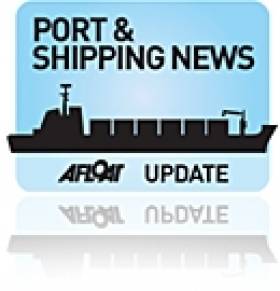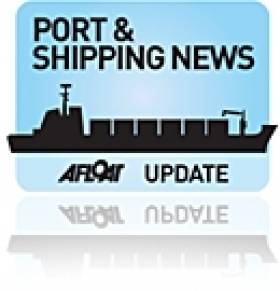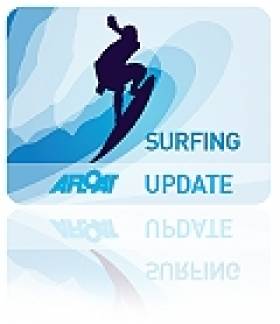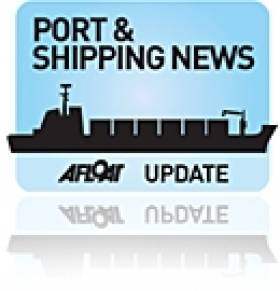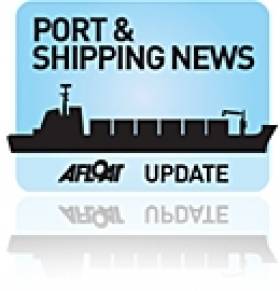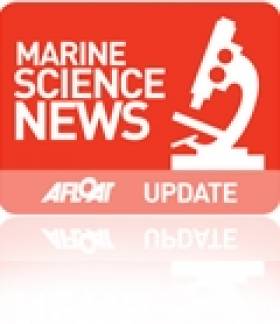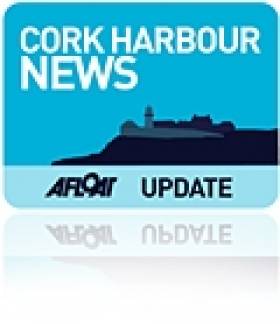Displaying items by tag: hazardous
Hazardous Cargo Containers Drifing Towards Ireland
PORT & SHIPPING NEWS - A number of hazardous containers believed to have fallen from a cargo ship this summer are drifting towards Ireland's southwest coast, the Irish Examiner reports.
The containers are said to have slipped from the deck of the MSC Flaminia, a German-registered cargo vessel which caught fire on 14 July in the middle of the Atlantic Ocean, with the loss of two crew and forcing the rest to abandon ship.
The vessel had been en route from North Carolina in the United States to Brememhaven in northern Germany when the incident occurred.
Among the thousands of containers it was carrying were 149 classed as 'dangerous goods', their exact nature not yet confirmed, and it is thought some of these are among the containers that fell into the sea and went missing as the ship listed in mid-ocean.
As reported by the Maritime Bulletin, there was some speculation as to whether the missing containers slipped off deck or were jettisoned.
The containers have since appeared in the main cargo shipping lanes off the southwest coast, posing a danger to transatlantic vessels.
Operations have already begun to retrieve the containers and tow them into Castletownbere in West Cork.
The Irish Examiner has more on the story HERE.
Ship-to-Ship Transfer of OIl Cargo Delayed Yet Again
#SHIPPING - The transfer of hazardous cargo from the stricken tanker at the entrance to Belfast Lough has been delayed yet again due to winds nearing hurricane strength.
The Belfast Telegraph reports that the Genmar Conpanion - which was redirected to Belfast after reporting a cracked hull en route from Rotterdam to New York - will remain sheltering off the Copeland Islands until the weather improves.
As previously reported on Afloat.ie, the ship-to-ship transfer of 54,000 tonnes of vacuum gas oil was originally scheduled to take place on 31 December last, but the task was pushed back as the receiving ship, BW Seine, was delayed by weather in the North Sea.
It had then been hoped to begin the transfer early yesterday with the receiving ship's arrival, but the strong storm-force winds that have increasingly battered Ireland in the last 36 hours put paid to those plans.
Ship-to-ship transfers can take place in wind speeds of up to 35 knots, but yesterday the wind speed in Belfast Lough was reported as more than double that.
Hugh Shaw, the NI Secretary of State's representative for maritime salvage and intervention, told the Belfast Telegraph: "As soon as we have a window to do the ship-to-ship transfer safely we will take it.
"Winds have been dropping a bit, but it looks unlikely the operation will take place on Wednesday."
'World's Biggest Waves' Off Irish Coast?
#SURFING - One of Ireland's top surfers claims he has found the world's biggest waves off the coast of Ireland.
As Irish Central reports, Portrush waverider Al Mennie says that he and surfing partner Andrew Cotton have found two waves reaching as much as 120 feet in secret locations off the coasts of Antrim and Donegal.
The duo are currently waiting for the right conditions to surf the biggest swells.
"The good days are few and far between – 90 percent of the swells are unrideable and we'd reckon that only two days each year are rideable," Mennie told the Irish Independent.
Their location is being kept under wraps for now due to safety concerns, as the waves crash down in a hazardous rocky area - making them definitely not suitable for novices.
Irish Central has more on the story HERE.
Transfer of Cargo from Stricken Tanker Delayed
#SHIPPING - The transfer of cargo from the damaged oil tanker sheltering at the entrance to Belfast Lough has been posponed for at least two more days.
As previously reported on Afloat.ie, the 228-metre Germar Companion - which is carrying 54,000 tonnes of vacuum gas oil - was redirected to Belfast after reporting a cracked hull en route from Rotterdam to New York.
The merchant vessel has been sheltering off the Copeland Islands since 16 December, where an official examination recommended removal of the cargo.
Today (31 December 2011) had been the scheduled start date for the move of the tanker's hazardous cargo by ship-to-ship tranfer. But the move has been delayed as the second ship, the BW Seine, is still en route to Belfast Lough.
"It is currently in the North Sea and could take another two days before it reaches the vessel and starts to transfer the cargo," a coastguard spokesperson told the Belfast Telegraph.
The transfer will be managed by specialist company Fendercare Marine in the lough, and could take between 24 and 36 hours. Once finished, the Germar Companion will sail into Belfast for repairs.
Cracks in Hull Force Tanker Re-Routing to Belfast
#SHIPPING - The Irish Times reports that a tanker carrying hazardous cargo has been allowed to berth at Belfast Port after it reported a cracked hull off the north-west coast.
The 228-metre Germar Companion, which is is carrying 54,000 tonnes of vacuum gas oil, was on route from Rotterdam to New York when its crew discovered cracking in its upper deck some 25 miles off Tory Island.
The Air Corps and Naval Service were stood down after the cargo ship was granted permission to berth at Belfast, where its hull will be inspected.
Marine Institute to host ARCOPOL Oil Spill Modelling Workshop
The Marine Institute will be hosting an ARCOPOL oil spill modelling workshop in Galway on Tuesday 13 September.
This one-day workshop is an opportunity to discuss the development of common procedures, techniques and decision tools for the management of response to oil spills and other hazardous and noxious substances.
The event is being held at the Marine Institute, Rinville, Oranmore, Co Galway under the auspices of the EU Interreg Atlantic Area Project ARCOPOL, in which the Marine Institute is a participant.
For detailed information see the agenda which is available to download HERE.
All relevant professionals are invited; attendance is free but limited on a first-come-first served basis. Registration is mandatory by e-mail to [email protected].
In line with a Government decision the steering group comprising the Departments of the Environment, Community and Local Government, Jobs, Enterprise and Innovation, Defence and Public Expenditure and Reform will be chaired by Minister Coveney. The Office of Public Works (OPW) and Cork County Council will also have a pivotal role on the steering group.
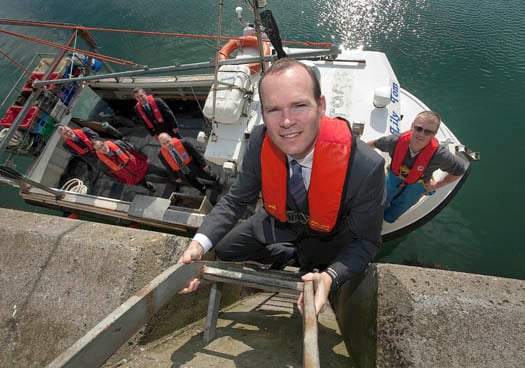
Coveney – addressing thorny issue of Hazardous waste in Cork Harbour
The first task of the steering group is to oversee the preparation of an application for a licence to the EPA which will be submitted by Minister Coveney.
Minister Coveney said "I am delighted to be in a position to address this particularly thorny issue in the middle of Cork Harbour and I am looking forward to chairing the steering group established by Government which I am confident will find a suitable solution to this long running saga".


























